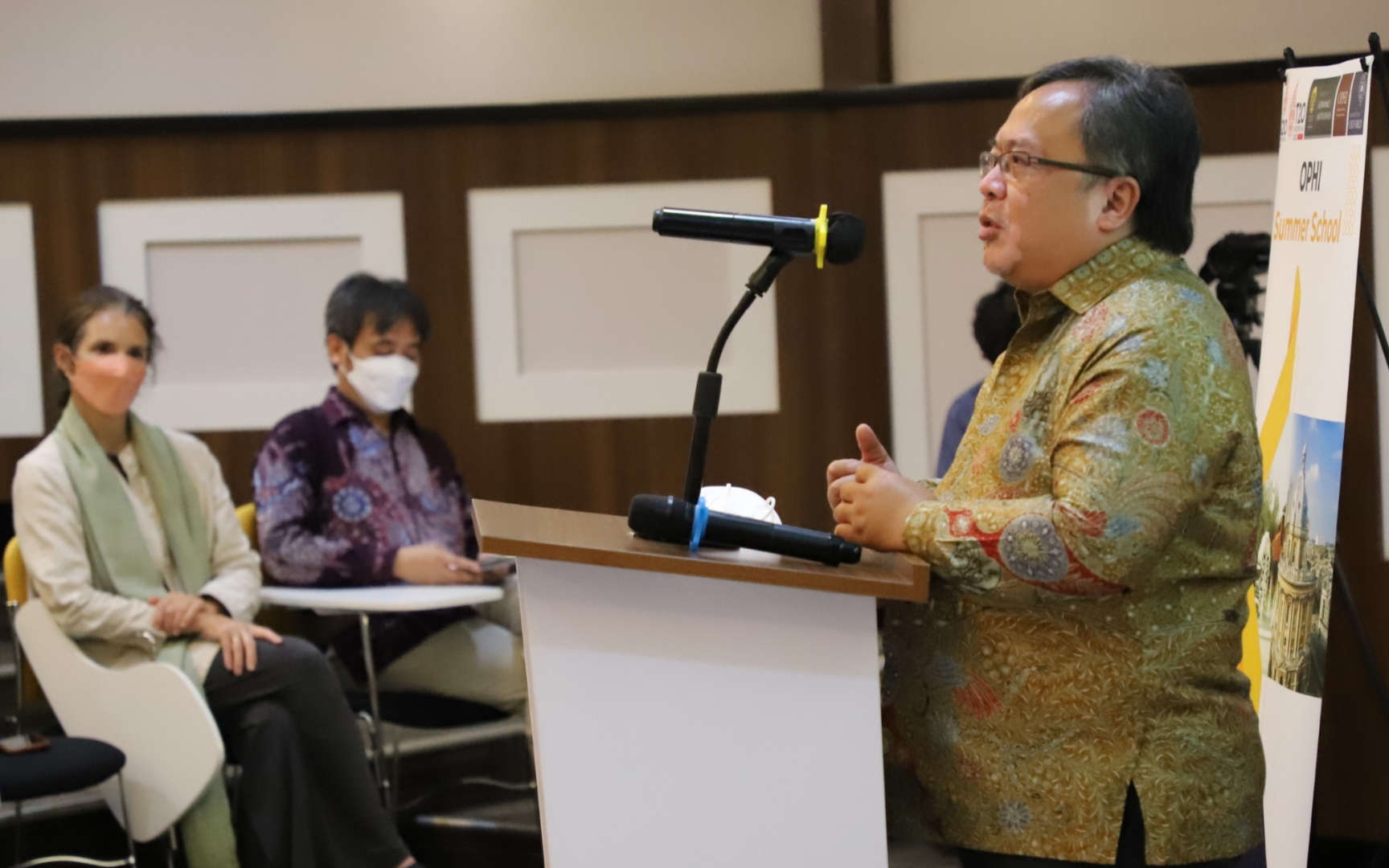OPHI Summer School as a Form of Continuous Collaboration between FEB UI and Oxford University
Rifdah Khalisha – Public Relations FEB UI
DEPOK – (4/8/2022) The Faculty of Economics and Business, Universitas Indonesia (FEB UI), in collaboration with OPHI Oxford University, held “OPHI Summer School 2022: Multidimensional Poverty Measurement and Analysis” on August 1-13, 2022.
Summer School 2022 operates across three time zones to bring participants together. They will go through face-to-face teaching sessions at Auditorium Gd. Department of Management and working group sessions in the Graduate Room 401 and 402, FEB UI Depok Campus.
In the first week, participants learned about applying the Alkire Foster (AF) method and the steps to design a Multidimensional Poverty Index; topics include normative decisions, capability approach, and data and indicators. OPHI uses Amartya Sen’s capability approach as a tangible tool to inform policy and reduce poverty.
Oxford University OPHI Overview
The Oxford Poverty and Human Development Initiative (OPHI) is an economic research and policy center within the Oxford Department of International Development at the University of Oxford. Established in 2007, the center is currently led by Prof. Sabina Alkire.
It aims to build and promote a more systematic methodological and economic framework with the hope of eventually reducing multidimensional poverty, which is based on the experiences and values instilled in communities.
The OPHI team guided by Professor Sudhir Anand, Professor Amartya Sen, and Professor Frances Stewart continues to engage to achieve this through activities and collaborations around the world, including research, publications, survey testing, quantitative and qualitative data collection, policy development, mentoring, and training (courses).
OPHI Summer School
On course activities, OPHI has held 2 (two) Summer Schools at the University of Indonesia Campus. Apart from Indonesia, since 2008, OPHI has also established ongoing collaborations with various universities in various countries, namely:
- 2022 Summer School (University of Indonesia, Jakarta, Indonesia)
- 2021 Summer School (online)
- 2020 Summer School was canceled on account of the Covid-19 pandemic.
- 2019 Summer School (Mexico City, Mexico)
- 2018 Summer School (Oxford, UK)
- 2017 Summer School (Marrakesh, Morocco)
- 2016 Summer School (Beijing, China)
- 2015 OPHI Summer School (Georgetown University, Washington D.C., USA)
- 2014 OPHI Summer School (University of Oxford, Oxford, UK)
- 2013 OPHI Summer School (George Washington University, Washington D.C., USA)
- 2012 OPHI Summer School (University of Indonesia, Jakarta, Indonesia)
- 2011 OPHI-HDCA Summer School (Delft University of Technology, Delft, Netherlands)
- 2010 OPHI Summer School (University of Jordan, Amman, Jordan)
- 2009 OPHI-HDCA Summer School (Pontifical Catholic University of Peru, Lima, Peru)
- 2008 OPHI-HDCA Summer School (Institute for Human Development, New Delhi, India)
Through this course, it is hoped that participants can receive new knowledge related to the four main focuses in the field of poverty. It was, first, expanding poverty measurement. OPHI develops and applies multidimensional measures of poverty, well-being, and inequality. This goes beyond the traditional one-dimensional approach to include dimensions such as living standards, education, health, quality of work, and more innovative dimensions.
Second, improving poverty data. OPHI developed tools to measure five dimensions missing from poverty data that have been largely ignored in international poverty studies: quality of work, physical security, ability to walk without shame and humiliation, empowerment, psychological well-being, and social isolation.
Third, capacity building. OPHI runs academic courses and technical training programs on multidimensional poverty and human development. It collaborates with universities, governments, policymakers, development agencies, and other research institutions.
Finally, policy impact. OPHI’s methodology has been adopted by policymakers, including national governments, and the United Nations Development Programme Human Development report. (mh)


